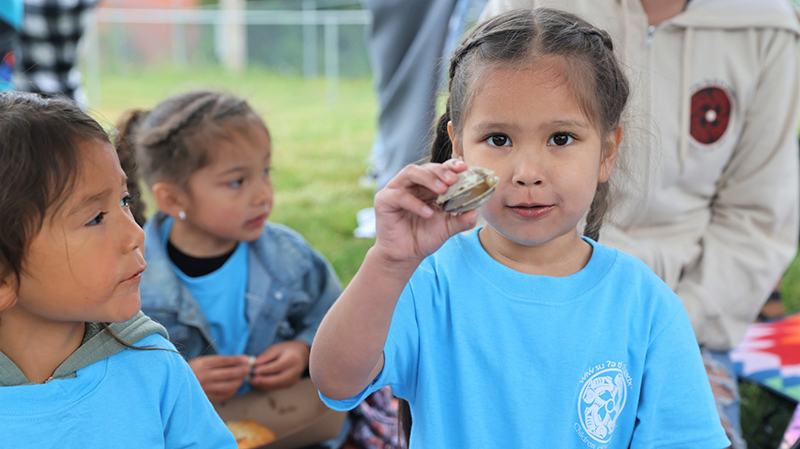
By Micheal Rios, Tulalip News
Giggles galore and the sweet scent of thimbleberries filled the air as the Tulalip Early Learning Academy (TELA) hosted its 4th annual clam bake for this generation’s youngest learners. Nestled a mere block away from the Tulalip Bay shoreline, outside a recently built mock longhouse on TELA’s campus, the academy’s Children of the Salmon got a taste of traditional Coast Salish lifeways.
Designed as a hands-on experience to introduce toddlers and preschoolers to their Coast Salish heritage, the clam bake brought together tribal educators, elders, and families in a memorable celebration of food, identity, and tradition.
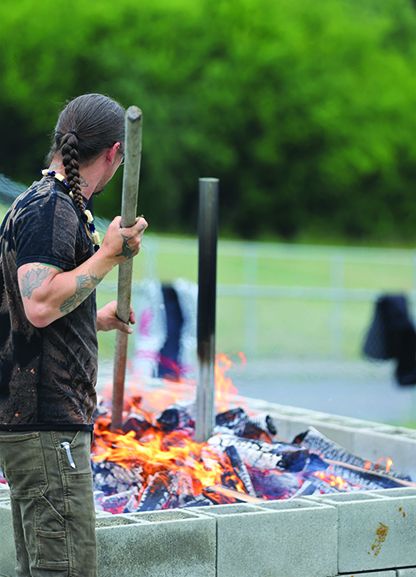
“Today, we just live on a tiny portion of territory, 22,000 square acres, compared to the millions of acres our ancestors controlled pre-treaty. Our leaders of the time signed the treaty, ceding those millions of acres in order to reserve the rights to fish and hunt and gather in our traditional area,” explained Tulalip elder and cultural historian, Ray Fryberg. “Our people used to live all along the water and traveled from village to village via canoe.
“Their paddles were made hard enough and with tips that they would use to dig into the beach and gather clams. They’d take the rocks, heat them up, and create steam to cook those clams. That was our ancestor’s version fast food. They’d use the natural elements of fire, water, and steam to cook their food and nourish their bodies on the go.
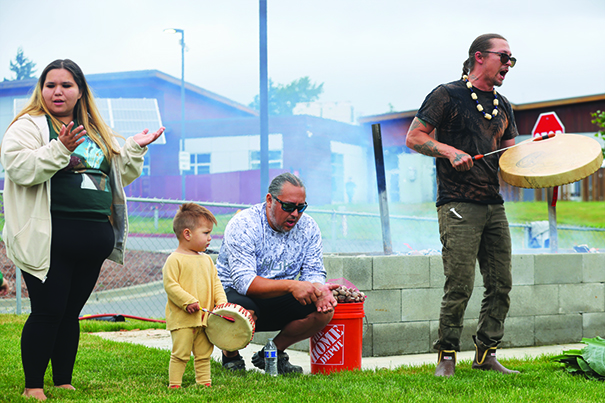
“They didn’t have seasonings, like the salt and pepper, that we have today. Instead, they used locally harvested sprouts to season their food. Today, we’ll be using skunk cabbage leaves and thimbleberry leaves to season the clams. You might smell a sweet aroma from the fire pit. That’s the thimbleberry seasoning the clams.
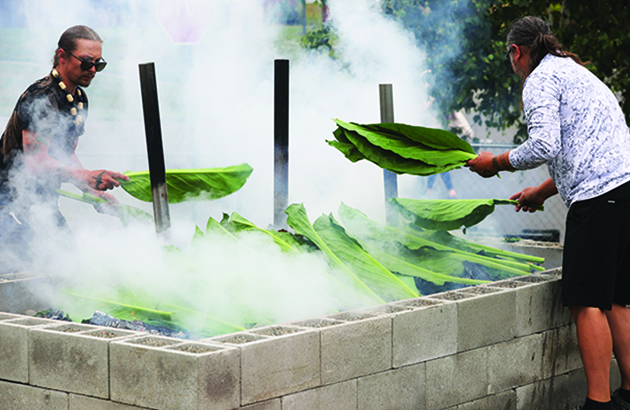
“And so, we’re going to have this clam bake, in a similar way that our ancestors used to cook their food when they traveled in canoes,” continued the venerable elder. “These are our first foods and these are our medicines to keep our bodies healthy. This is what we mean by traditional teachings and we don’t want to let these things get away.”
TELA’s mission to immerse its Children of the Salmon in culturally rich activities and develop strong cultural values and traditions was on full display. This includes the priority to make it completely normal to hear Tulalip’s ancestral language of Lushootseed spoken every day via word learning, fun activities and story time.
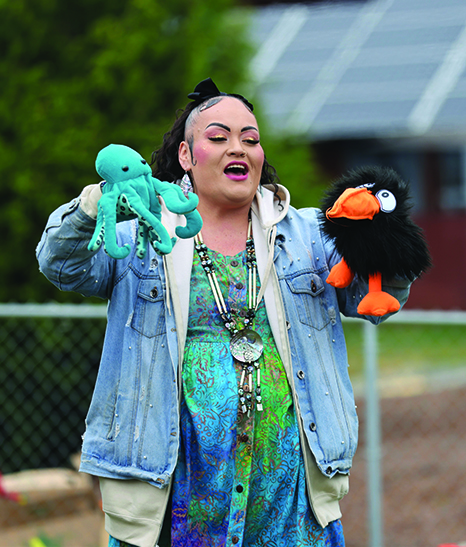
In keeping with teachings from a traditional clam bake, in which Lushootseed would’ve been the primary language, the Tribe’s Language Warriors were on-site sharing songs that many of the kids knew word for word. There were even a few traditional stories shared that kept the children’s attention while the clams were being prepared.
“Here at TELA, our teaching model is rooted in our traditional ways,” said TELA Director Sheryl Fryberg as she watched the anticipation and excitement grow from her Children of the Salmon. “Our teachings aren’t confined to a classroom or a particular book that says you have to remember this or that. Instead, our teachings are taught by active participation and learned experience.
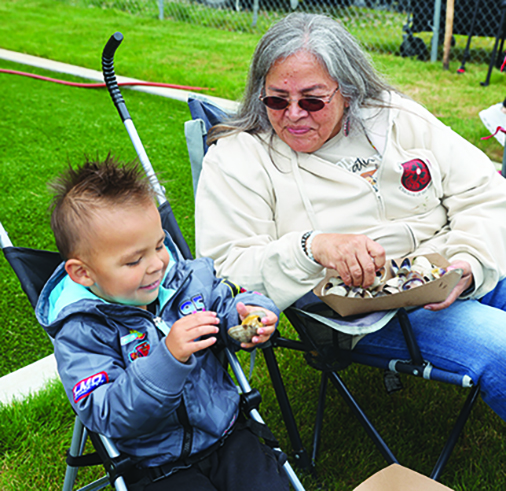
“How do these experiences, like from his clam bake for example, make our children feel? We want them to feel this experience in their spirit so they have confidence and pride in who they are, always,” continued Sheryl. “We understand that as they grow older, they may move away from Tulalip. But having these good, welcoming cultural experiences as a child, they’ll know that Tulalip will always be here for them and for their future children. It’s about planting the seeds so the roots grow.”
Several students couldn’t help but make their way as close as possible to the fire pit, where they watched with wide-eyed wonder as the clams were prepared and placed over hot rocks layered with wet seaweed and large skunk cabbage leaves, and then steamed the old-fashioned way.
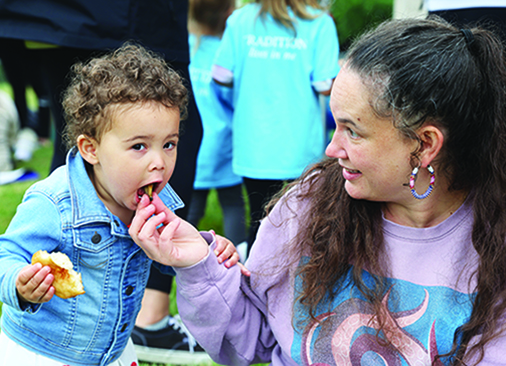
After nearly 20 minutes of steaming and being seasoned in sweet thimbleberry, the clams were ready to eat. The Academy’s students lined up and one by one were served a heaping ladle’s worth of oceanic deliciousness. For some of the students, it was there first time ever eating clams. For others, it was just another day at an all-you-can-eat seafood line. In either case, the clam bake successfully served as an extension of its primary mission by bringing abstract ideas like cultural identifyand traditional teachings into a very tangible and very tasty form.
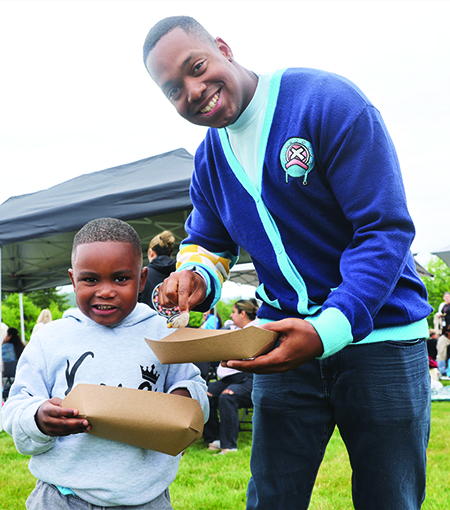
“This right here is everything,” said Lushootseed Language Warrior and lifetime fisherman Thomas Williams, smiling as he watched the children devour their traditional food. Together, with his brother Andy, they manned the fire pit and ensured the clams were steamed to perfection. “When we were growing up, the excitement with food was getting a McDonald’s Happy Meal. Now, here we are, getting that same reaction from kids today with our traditional foods.
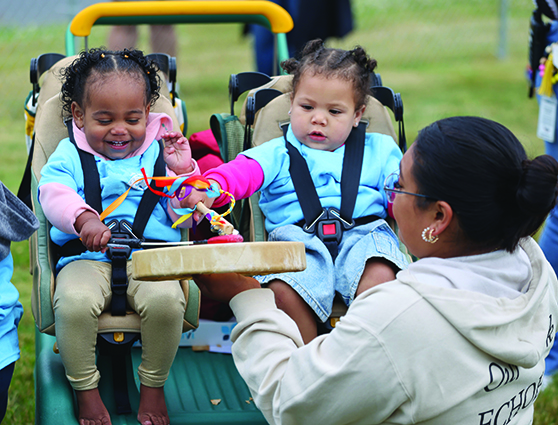
“We hear concepts like food sovereignty, but what does that really mean? For us and these kids, it’s about gathering and harvesting our traditional foods without having to purchase them from a store,” he added. “In order for them to want to learn to gather and harvest, or hunt and fish, they have to like traditional foods, which means introducing them to these foods at an early age. Just look around. Seeing these kids eat these clams and run back into line for more is so encouraging. I’m sure there are future fisherman here. They may not remember this specific moment when they are adults, but they’ll know they like the taste of clams and they’ll embrace that knowledge by harvesting clams or crab or geoduck to feed themselves and their family.”
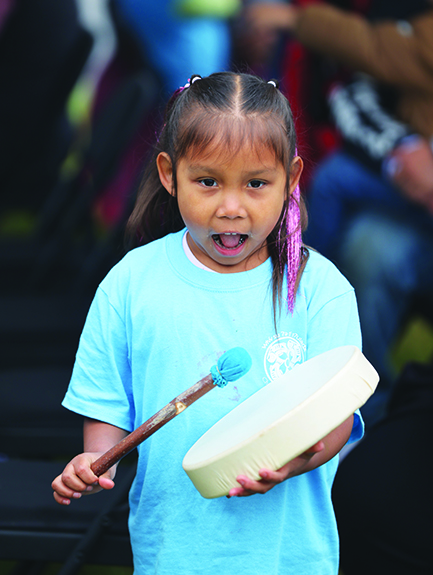
Planting the seeds early so our Tribe’s children embrace tradition and grow to know who they are and where they come from are ideals both TELA and Lushootseed strive to impart onto the greater Tulalip community. If the clam bake’s success shows us anything, it’s that sometimes all it takes is a taste to ensure tradition lives on.